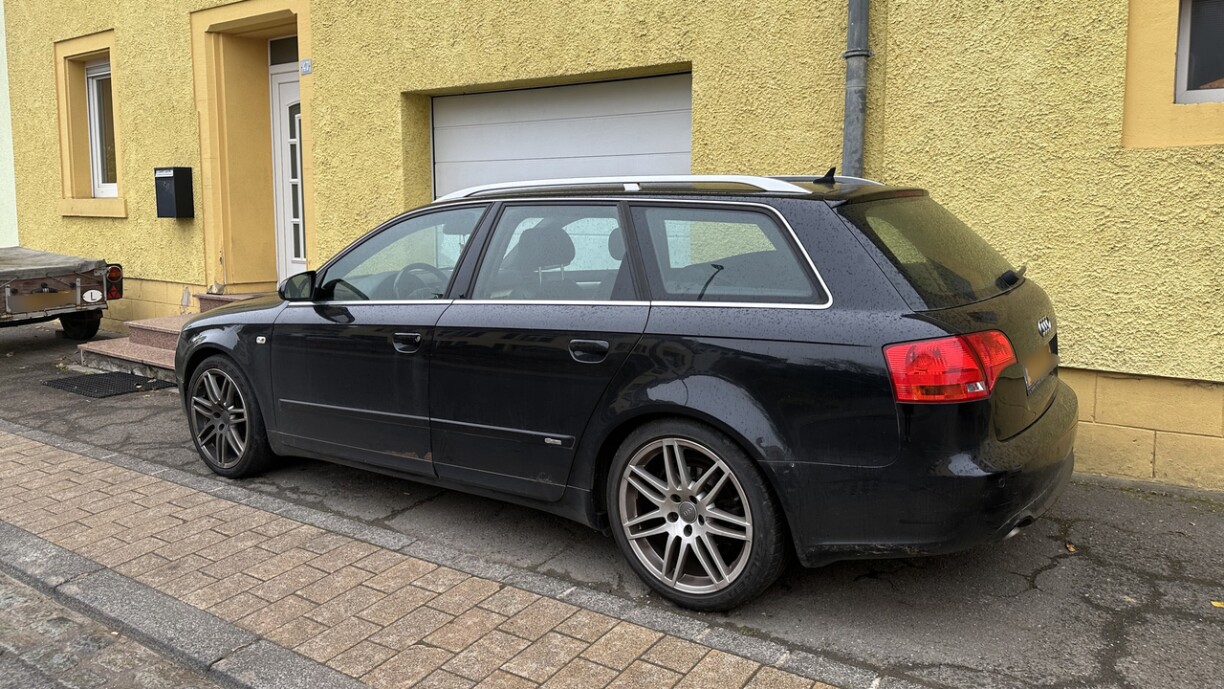
Parking disputes are a common source of tension among neighbours in Luxembourg, a country with one of the highest rates of car ownership in Europe. Since many households own multiple vehicles, finding parking space for all of them is often a challenge.
With limited space in front of homes, residents may be tempted to park on pavements, in front of other houses, or even on private property–at the risk of annoying their neighbours…or the police.
A recent Reddit post highlighted one resident’s struggle. After purchasing a “fairly run down” house, the new owner discovered that drivers had long been using the space in front of their garage as a parking spot, assuming the property was abandoned.
The owner has since moved in and partially renovated the home. Seeing as the outside “still looks slightly abandoned,” they placed a “no parking” sticker on the garage door. But to no avail: “Nothing seems to dissuade people from parking in front of my garage several evenings a week,” the owner wrote, speculating that the cars belong to patrons of nearby restaurants. Frustrated, the resident added, “I don’t want to get into calling the cops every time someone parks there.”
This post sparked numerous comments from redditors. In response, our colleagues from RTL Infos reached out to the police to clarify Luxembourg’s regulations on obstructive parking and potential recourse for residents facing similar issues.
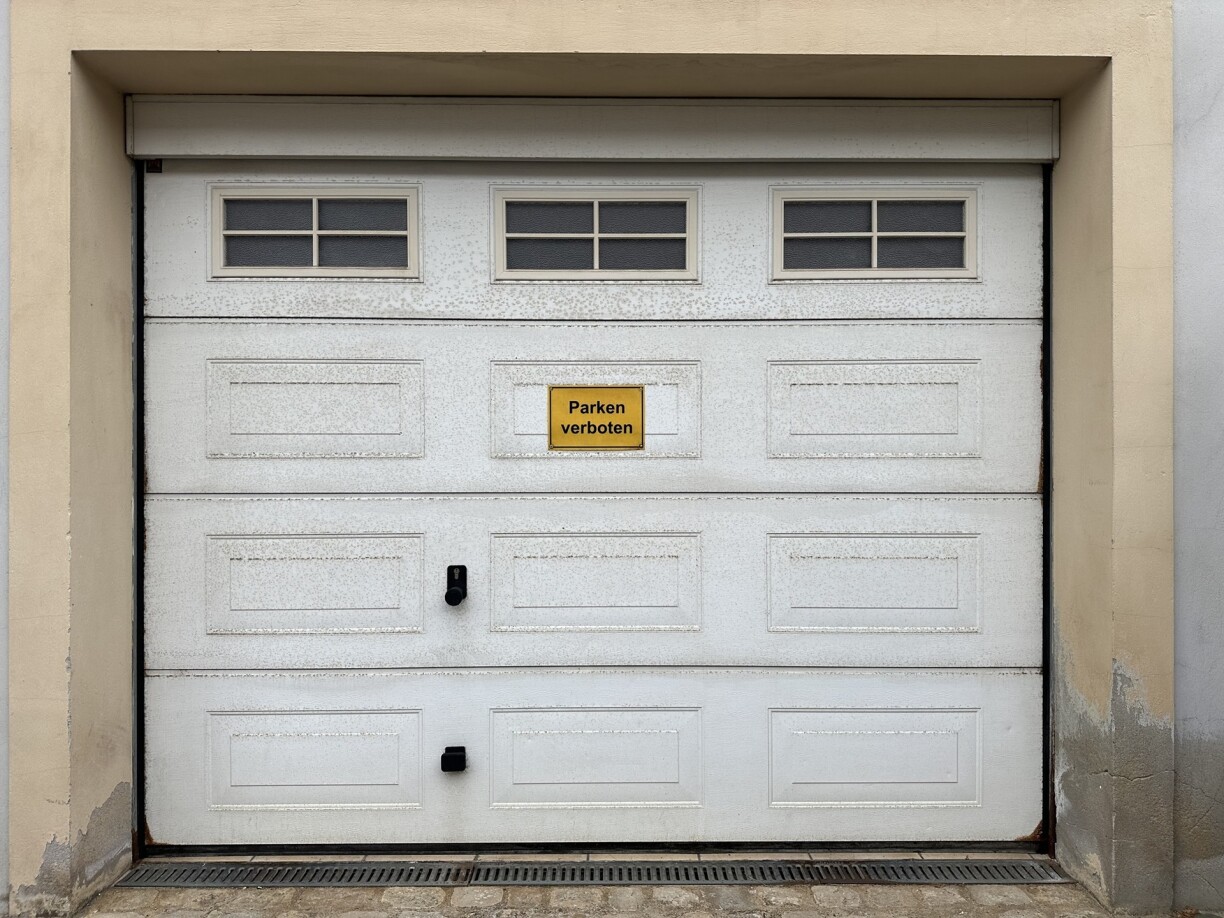
Blocking access to a parking entrance, whether private or public, is one of the clearest violations of parking regulations in Luxembourg. This includes situations where vehicles prevent others from entering or exiting a parking space–such as the case of the resident mentioned earlier–or when a motorist parks in a private space for a “quick errand” at a nearby shop.
No matter how many times these drivers activate their hazard lights or leave a note on their windshield, they are obviously still prohibited from doing so. Luxembourg’s Highway Code explicitly prohibits such behaviour under two key articles:
Both offences carry a fine of €49.
According to police data from 2023, a total of 1,545 fines were issued under Article 165-05, while 277 fines were issued under Article 168-01.
There is one exception: the owner of a private parking space may park in front of their own garage or driveway, even if their vehicle partially or entirely occupies public space. The police confirmed that this is permissible provided the parking space is for the owner’s exclusive use.
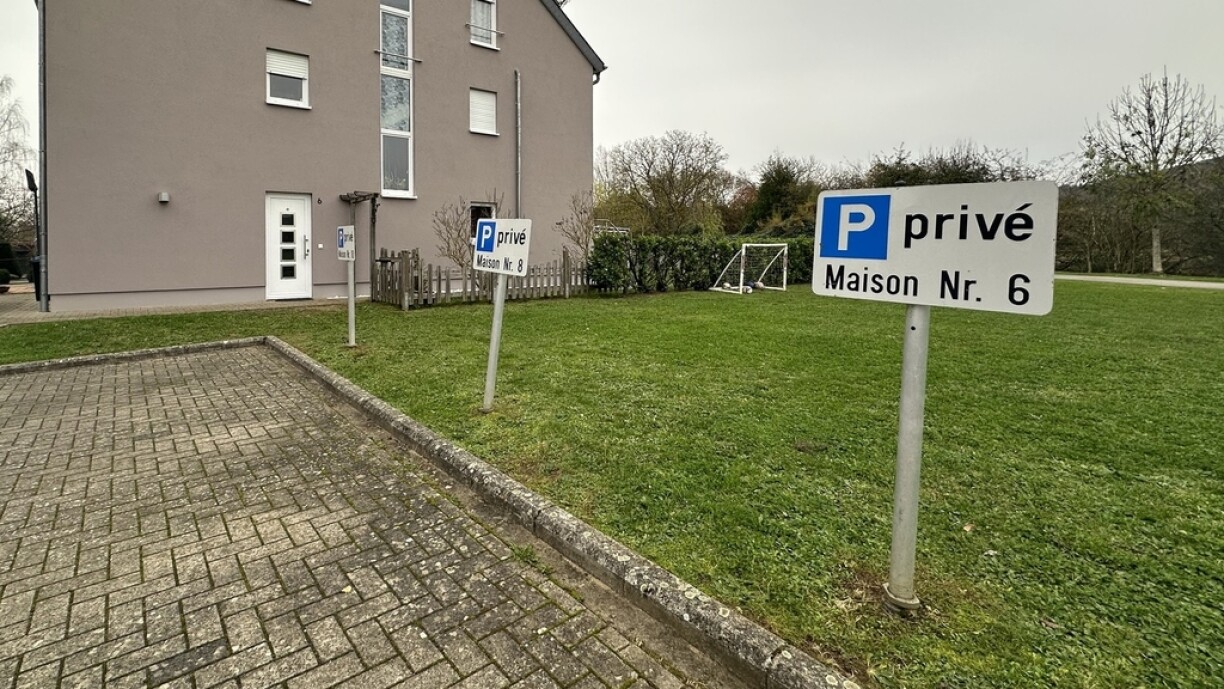
To address recurrent issues with blocked parking entrances, some municipalities, including Luxembourg City, offer practical solutions to help residents. These measures include applying painted markings, installing “no parking” signs, or other visual aids to ensure access to garage entrances or private parking areas remains clear.
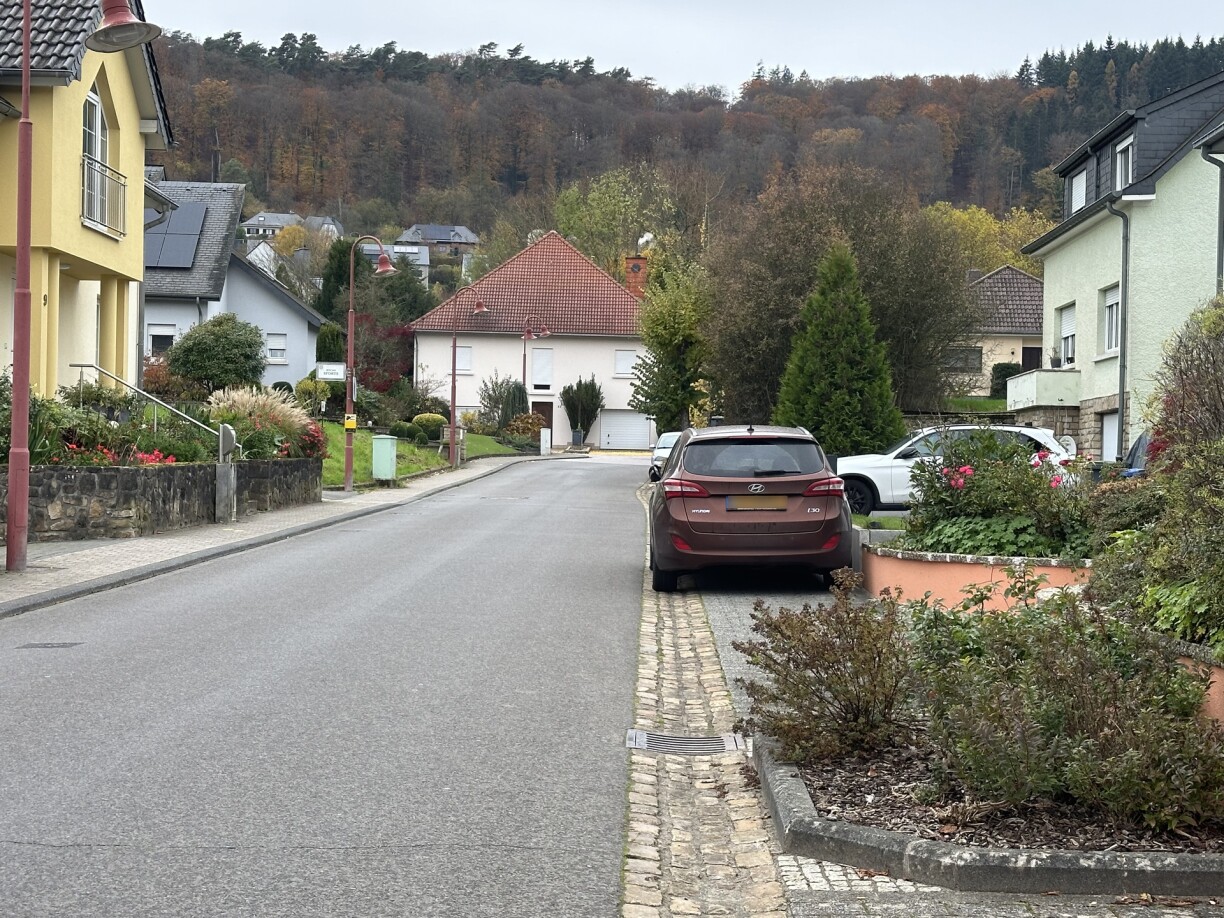
A common scenario involves a resident living near a road with public parking spaces. Can they claim the space directly in front of their house for personal use?
The police provide a clear answer: “No, no one has the right to claim public parking spaces for themselves.” If the parking spot in question is on public property, a resident cannot prohibit their neighbours or other motorists from using it. Instead, it might be more useful to maintain good relationships with neighbours and adhere to the principles of courtesy and good neighbourliness.
However, the situation changes if the space in question is on private land that appears to be part of the public highway. In such cases, the police explain, “It is the responsibility of the resident to install clear signage to indicate that the land is private.”
For example, if a parking spot in front of a residence is private but not visibly marked, other motorists might mistakenly assume it is public. The onus falls on the owner to clearly identify the space, such as by installing signs or other indicators to prevent confusion.
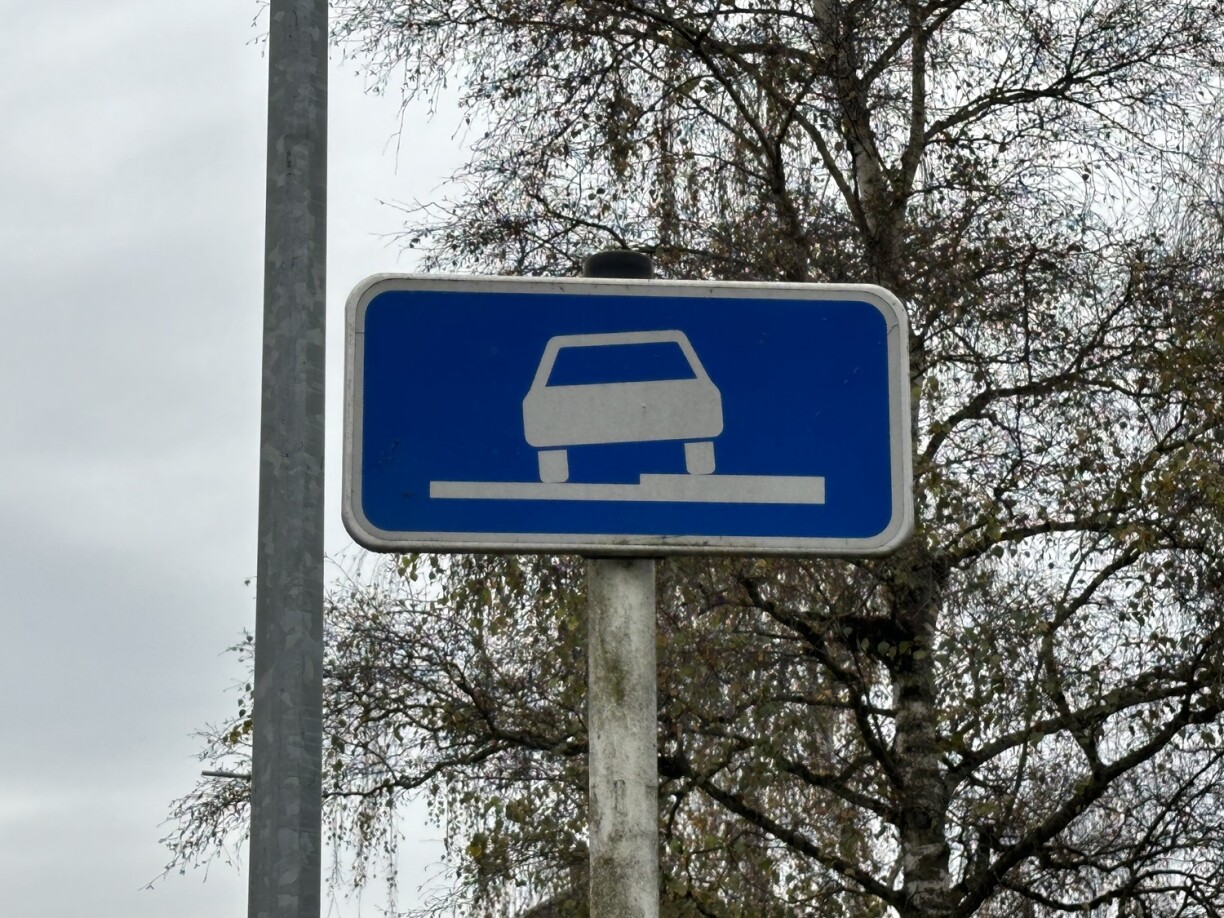
When a vehicle is parked partially on the pavement and partially on the road, is it automatically an offence? According to the police, “Not necessarily.”
As a rule, pavements are reserved for pedestrians, and motor vehicles are generally prohibited from parking on them. However, there are exceptions: parking on the pavement may be permitted if specifically marked. To comply, vehicles must also leave a clear passage of at least one metre for pedestrians. Violations of this rule are common, with pedestrians often forced onto the road when cars occupy entire pavements.
In detail, violations of parking rules on pavements carry the following fines:
Parking in reserved lanes, including pedestrian and cyclist crossings, also incurs fines:

As the police note, violations of parking rules are not only subject to fines but can also result in vehicle impoundment. This includes towing and additional costs for the owner.
The police reference Article 17 of the 14 February 1955 law, which outlines the circumstances under which vehicles may be immobilised on the public highway, either by removing the ignition keys or by using a mechanical immobilisation device such as a wheel clamp.
In cases of improper parking, the police may impound a vehicle if it:
For more information on the specifics of parking offences, you can visit the police website.
Read also:
Noise complaints: Noisy neighbours - what are your rights?https://infos.rtl.lu/actu/luxembourg/a/2167977.htmlhttps://infos.rtl.lu/actu/luxembourg/a/2167977.html